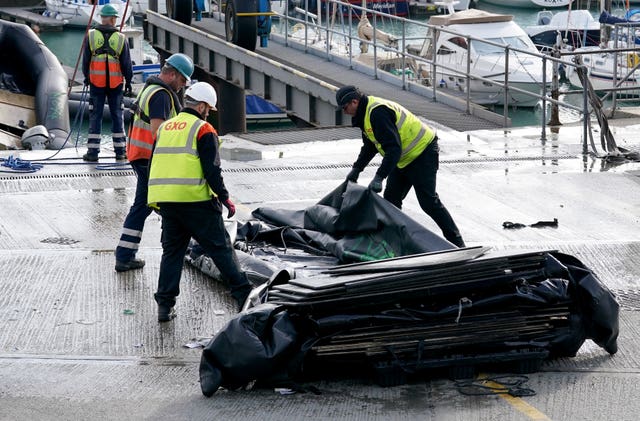
Migration is likely to be a problem for “many years to come”, Immigration Minister Robert Jenrick has said as he warned the current numbers of people coming into the country were “unsustainable”.
Mr Jenrick said that he and Home Secretary Suella Braverman were looking at new legislation, including tightening the rules on student visas, as they sought to get the level of net migration down.
“We’re constantly speaking to the Prime Minister. We think that this is a problem that could be with us for many years to come,” he told GB News.
“Mass migration is going to be one of the stories of the 21st century, and so we have to recreate our immigration system so that it’s fit for purpose, that will mean creating a system where deterrence is through the whole thing.”

His warning came as the Government faces continued pressure from Tory MPs to deal with the issue small boats crossing the Channel.
Mr Jenrick said UK has just had the largest number of people entering the country in a single year since the Second World War, with people fleeing conflict and oppression in Ukraine, Afghanistan, Syria and Hong Kong.
While the country had been right to take “big, bold, compassionate steps” to welcome them, he said there were “consequences” which had to be addressed.
“We can’t have a million people entering the country in a single year and net migration of half a million – it’s just not sustainable,” he said.
“Rishi Sunak, the Prime Minister and Suella Braverman, the Home Secretary, and I are reviewing this.
“We’ve only been in our jobs for four weeks, and we haven’t come to firm conclusions.
“But I think all three of us are agreed that net migration of 500,000 is wrong.”
Mr Jenrick said part of the solution lay with deterrent policies like the Government’s stalled plan to deport asylum seekers to Rwanda for processing which is currently before the courts.
Another area “ripe for reform” was the rules on student visas and the number of dependents they can bring into the country while they are studying.
“We’ve got very liberal rules on students bringing their family members with them and that is something that we are interested in reviewing,” he said.
“It’s right that if you came here to do a PhD, and staying in the UK for a long time that you might be able to bring your spouse with you, but the figures that I’ve seen in the last few weeks in this job suggests that the problem is much bigger than that.
“And what I’m concerned about is there are people coming to universities here as a backdoor way of bringing their families into the UK and staying here for a prolonged period.
“Because although the majority of students do leave the country at the end of their studies, 40% don’t.
“A very significant number of people use this as a route to a life in the UK.
“This is a big driver of net migration.”
Mr Jenrick said ministers were also determined to reduce the “huge backlog” in asylum cases, suggesting they could adopt a “lighter touch process” with those coming from countries for which there are “extremely high grant rates”.
“We’re not going to do an amnesty.
“We’re not going to compromise on security,” he said.
“There are some countries where we have extremely high grant rates and so it would be sensible to say that they have perhaps a lighter touch process than those where it’s highly likely that they’ll be rejected, because we’ve got to get the backlog down.”


Comments: Our rules
We want our comments to be a lively and valuable part of our community - a place where readers can debate and engage with the most important local issues. The ability to comment on our stories is a privilege, not a right, however, and that privilege may be withdrawn if it is abused or misused.
Please report any comments that break our rules.
Read the rules hereLast Updated:
Report this comment Cancel